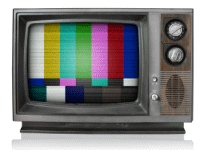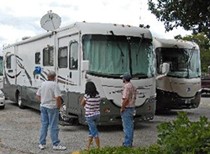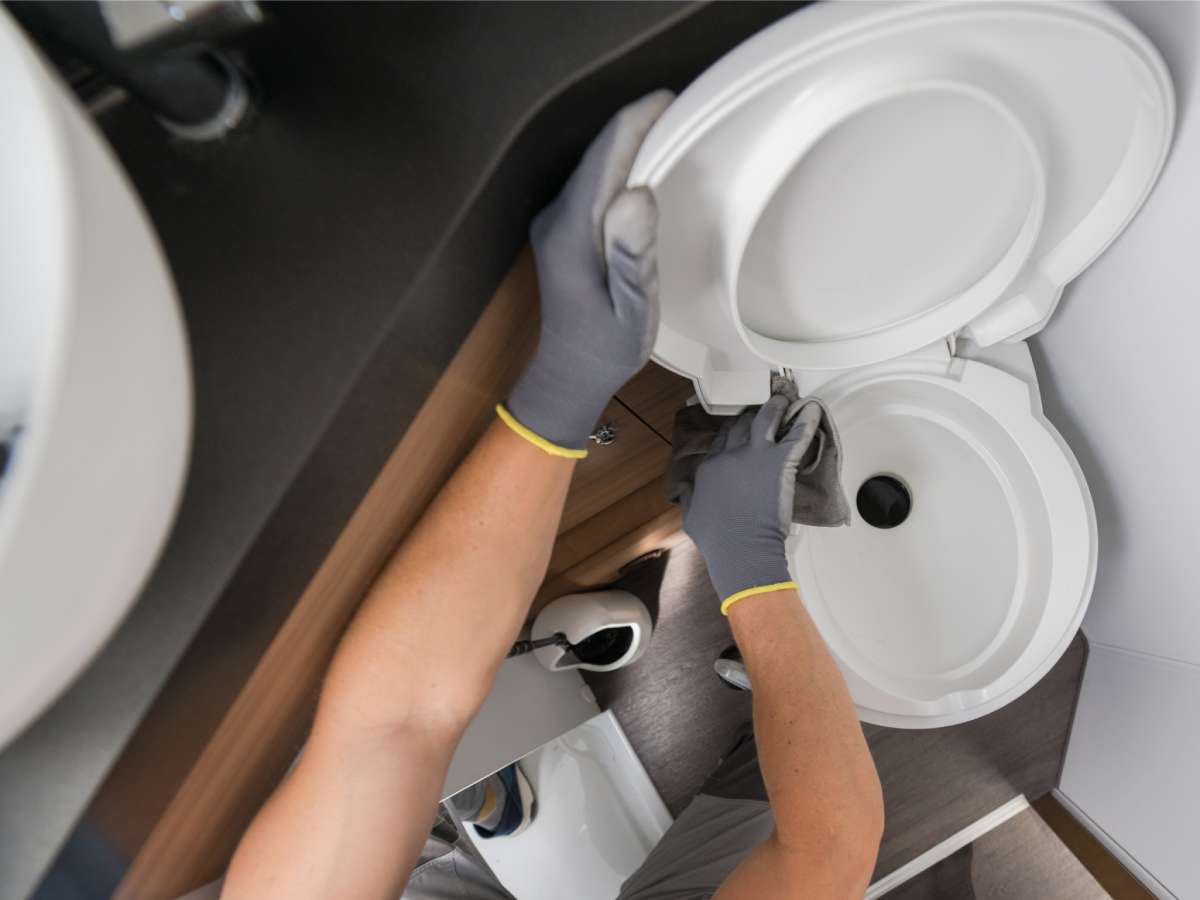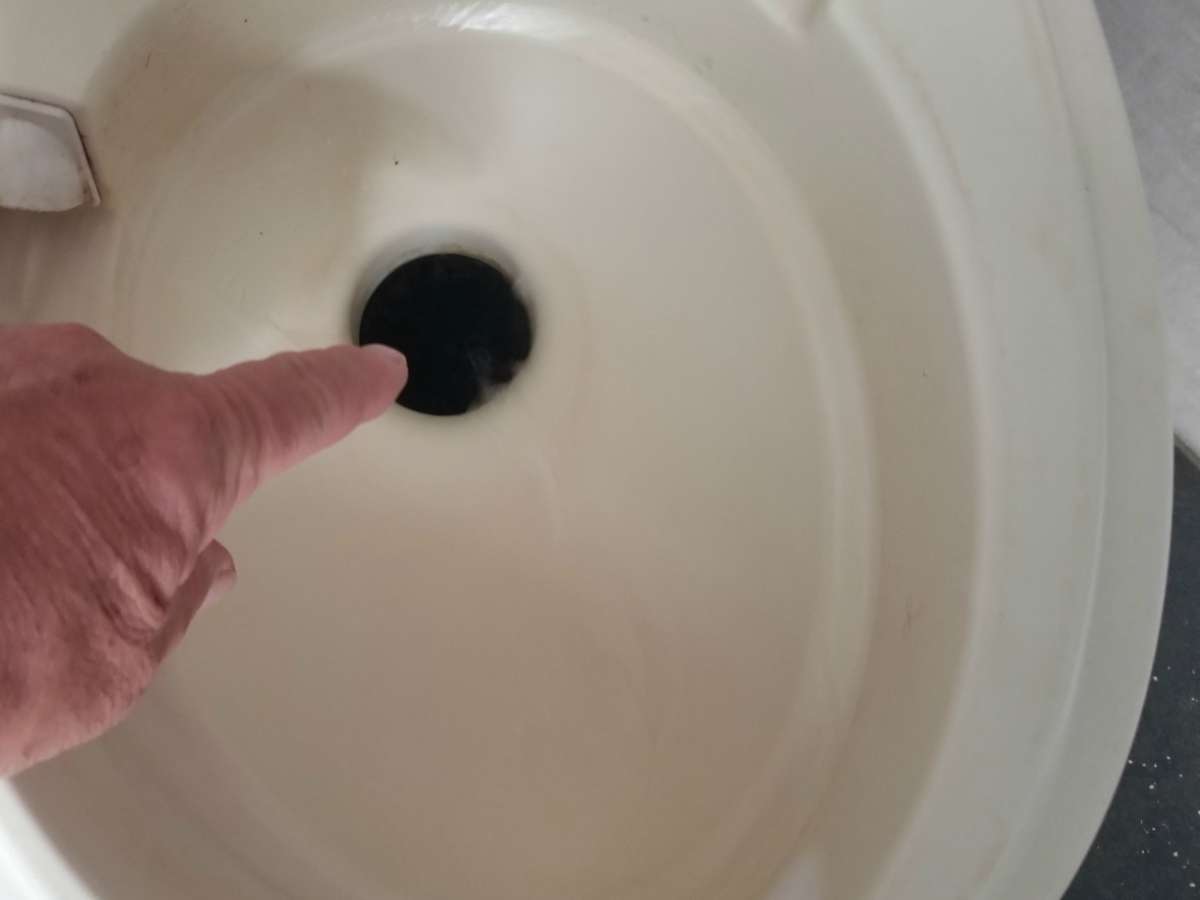 This time next year, there will be a whole lot of useless TVs out there that will no longer be receiving an analog signal.
This time next year, there will be a whole lot of useless TVs out there that will no longer be receiving an analog signal.
As you’ve probably heard by now, the whole country is switching from analog to digital TV signals by February 17, 2009 — as mandated by the U.S. Government.
What does this mean for RVers? What about the TVs in RV travel trailers and motorhomes? How can you tell if a TV is analog or digital anyway?
If a television has an analog tuner (rather than a digital tuner), then it will require a converter box after February 17, 2009 in order to receive over-the-air broadcasts with an antenna. This is because all channels will only be broadcast with digital signals on that date.
How This Affects RVers
 In short: watching DVD movies will be no problem, but watching free television channels are another story.
In short: watching DVD movies will be no problem, but watching free television channels are another story.
For example, when camping in areas where today you crank up your Winegard TV antenna to watch the evening news… if your television doesn’t have a digital tuner, then you will be left without any reception come February.
Of course, if the TV entertainment aboard your RV mainly consists of watching DVDs, then you’ll be fine. The changes from analog to digital signals will have no affect on how add-ons like gaming consoles, VCRs, and DVD players will work with old TVs. (So if you’re a subscriber to Netflix for rental movies on the road, then you’re still in business.) Likewise, analog-only TVs should also continue to work as before with cable and satellite TV services.
Our Dutchman 18B travel trailer came with a DVD player built right into the standard AM/FM stereo receiver. If you would like to add a DVD player to yours, you can get one pretty quickly (and inexpensively) these days. You might find watching DVDs a better alternative, as it doesn’t matter how far away from the station you are — you always get good reception ’round the clock.
And, if a campground has cable TV provided at your campsite, then that will still work as it does now.
Basically, the whole analog to digital switcheroo only affects “free TV channels” that people are watching on standard (analog) television sets — usually with an antenna.
Is My TV Analog Or Digital?
When it comes to determining whether your existing TV has a digital tuner or not, things get a little confusing. Thankfully, the official FCC Consumer Facts About Digital TV web page provides some hints.
The best way to know for sure if your TV is digital or analog is to refer to your owner’s manual. What you’re looking for is any reference to a “digital tuner” or “digital receiver”. For your TV to work (without a converter box) after February 2009, it must have a digital tuner or digital receiver. (Words like “digital monitor” and “digital ready” aren’t enough.)
In addition, the identification tag or serial number plate located on the back (or side) of your television set may give some indication if your TV is digital or analog.
Another indicator is the date that you purchased your TV. After May 25, 2007, all television equipment sold must contain a digital tuner, OR… if not, it has to be identified at the point-of-sale as not having one. So be sure to look for that label with your new TV.
If your TV references “analog” or “NTSC”, then chances are it’s an analog-only TV, and you will need a converter box in order to watch over-the-air broadcasts.
Lastly, if you’ve tried everything else and you still can’t determine if your TV is analog or digital, then check the manufacturer’s website for your TV’s make and model. Or, search for your TV’s brand name followed by the model number in your favorite search engine.
I did this for our 32″ Sansui TVS3275. After scanning the search results, I found a page listing the specs for this television set. Halfway down, I saw that ours is an analog TV — soon to go dark, except for the cable we have attached to it. This TV is only a little over 2 years old. If doing a search on your make and model doesn’t reveal any information, it’s a good bet that it’s too old and is an analog model.
For the rest of our TVs, my personal approach is going to be when that day next February passes, I’ll plug them in and see which ones work and which ones don’t. That’s a guaranteed way to determine if a TV is analog or digital! I’m betting that all 5 of our TV sets won’t work, but if some do, then I’ll keep the TVs that work and recycle the ones that don’t.
Got An Analog TV?
If your TV turns out to be analog like ours, you still have options.
 The Government is offering $40 coupons toward converter boxes that will allow you to watch digital TV with your analog set. There is a limit of 2 per family, so remember they are only needed on TVs that are not hooked up to a satellite or cable service. Also it’s best to request your coupons when you’re actually ready to buy the converters, because they expire 90 days fr
The Government is offering $40 coupons toward converter boxes that will allow you to watch digital TV with your analog set. There is a limit of 2 per family, so remember they are only needed on TVs that are not hooked up to a satellite or cable service. Also it’s best to request your coupons when you’re actually ready to buy the converters, because they expire 90 days fr
om the date they’re mailed to you.
You can order a Digital Converter Box online and continue watching your favorite programs on your existing TV.
Recycle Your Old Analog TV
With the flood of outdated TVs coming out of service, recycling becomes an important issue.
We’ve all seen the occasional derelict TV lying in the weeds along the road. That is not an option here. Instead, you should dispose of your old TVs in a legal and “green” way. The cost of recycling TVs has come down dramatically from what it was just a couple years ago. Plus, laws are in place in many states that force manufacturers of electronic goods to recycle items that they have sold.
- Best Buy is one company that has taken a leadership roll in this effort. You can drop off 2 TVs (or other electronic items) per day at no charge for recycling.
- At My Green Electronics, enter your zip code and all electronics recycling locations in your area will be displayed for you.
- Another good site is Earth 911. Enter the items you want to dispose of (not just electronics), along with your zip code to be directed to the nearest recycling facility.
One thing’s for sure… a lot of people will be buying new TVs next year! Between our house and our RV travel trailer, we have 5 TV sets that will likely quit working on February 17, 2009.



